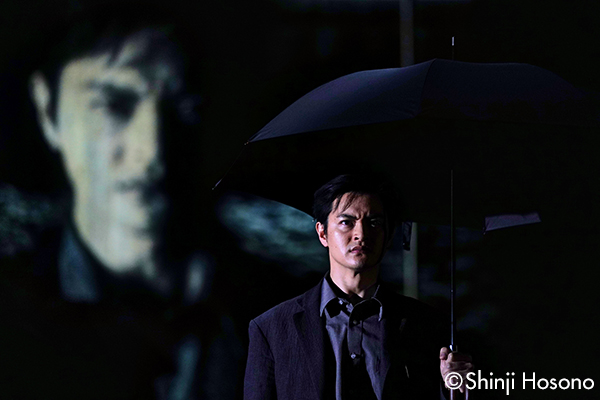
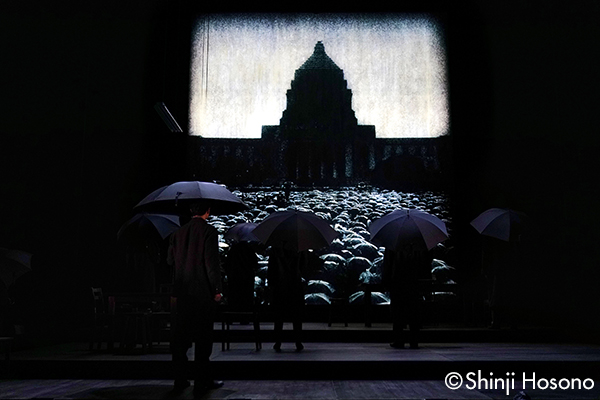
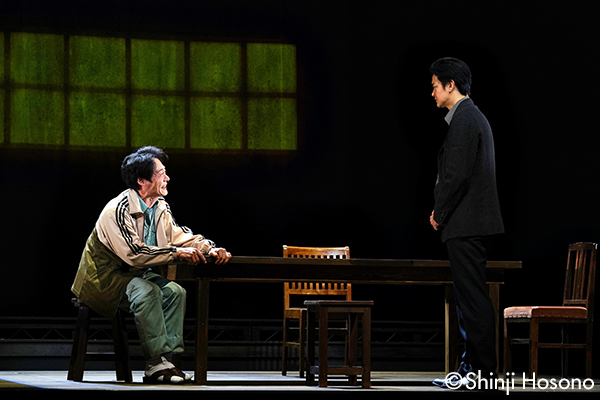
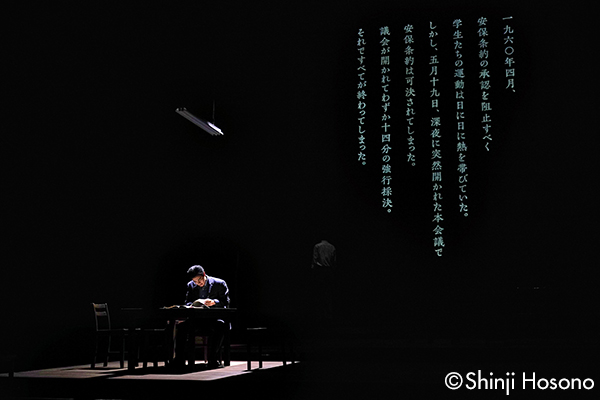
Even If There Are People Who Laugh at Her (Kanojo wo Warau Hito ga Itemo)
(Dec. 4 – 18, 2021 at Setagaya Public Theatre
Photo: Shinji Hosono
Data
:
Premiere: 2021
Even If There Are People Who Laugh at Her (Kanojo wo Warau Hito ga Itemo)
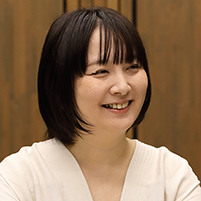
Photo: Takayasu Hattori
Born in Tokyo in 1977, Setoyama graduated from the Waseda University’s School of Political Science and Economics. In 2001, she started the theater company Minamoza, for which she would be the playwright and director. Among her representative plays are Emotional Labor, Mienai Kumo(Invisible Cloud) (original by Gudrun Pausewang), Yubi (Fingers), Familia, and others. In 2016, Setoyama’s play Karera no teki (Their Enemies) won the 23rd Yomiuri Theater Award for Excellent Work. In 2019, Setoyama won the 26th Yomiuri Theater Awards Excellent Director award for her direction of the Office Cottone production of Yoru, Naku, Tori (Birds that Sing at Night) and the Ryuzanji Company production of Watashi, to Senso (Me, and the War). Other representative works include the Office Cottone production of Rachi mo naku Kegare naku (playwright, director), Oreste and Purades (playwright) at Kanagawa Arts Theatre, Djihad at Saitama Next Theater and Ano Dekigoto (The Event) at New National Theatre (directing both). Setoyama has also written the screenplays for Amizu Haruko ha yukuefumei (Japanese Girls Never Die) and River’s Edge Her play THE NETHER won the 27th Yomiuri Theater Award for Excellent Work and Best Director.
In 2020, received the 70th New Face Award of the Minister of Education Award for Fine Arts. Setoyama also won the 28th Yomiuri Theater Awards Excellent Director award for her direction of The Contemporary Noh plays / Eudemonics inspired by Noh plays Dojoji and Sumidagawa.
Minamoza
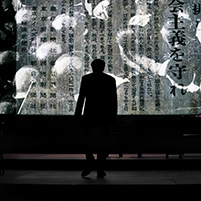




Even If There Are People Who Laugh at Her (Kanojo wo Warau Hito ga Itemo)
(Dec. 4 – 18, 2021 at Setagaya Public Theatre
Photo: Shinji Hosono
Data
:
Premiere: 2021
The date is June 16, 1960. People carrying black umbrellas gather quietly and begin walking toward the National Diet Building. A single newspaper reporter begins walking in the opposite direction from the crowd.
The setting changes to the year 2021. As the world is thrown into confusion by the COVID-19 pandemic, Japan is working toward the one year delayed holding of the 2020 Tokyo Olympics and Paralympics. The newspaper reporter Ichiya has for years been covering the stories of the survivors of the Great East Japan Earthquake and Tsunami.
The Iwai family are victims of the 2011 disaster that Ichiya has spoken with periodically since they were forced to evacuate the disaster area to a temporary housing location. The father is ill and can’t work, the eldest son has had to seek employment back in their former hometown to support the family, since the temporary housing agreement has expired. The younger sister takes care of her father while working part-time. The family’s life is still far from the promised recovery of the region.
One day, Ichiya is suddenly informed that he is being transferred from the local news section where he has long worked. He appeals to his section chief that if he can’t continue to write about people like the Iwai’s, no one will hear about their dire state. The answer he gets in return is that the company wants to start building a more optimistic mood since the Olympics are coming.
It is around that time that Ichiya hears that his grandfather, Goro, who had been a taxi driver, had previously been a newspaper reporter, but had resigned that job in 1960. Ichiya had never once heard his grandfather speak about that part of his past. In time, their two stories had come to intersect, linking the two eras of 2021 and 1960 in an unexpected way.
As a reporter in 1960, Goro had been covering the story of students who were protesting the revision of the U.S.-Japan Security Treaty. As the protests became more intense and violent, one female college student died in one of the demonstrations. Goro was intent on uncovering the unknown truth about how she died. The media was intent on criticizing the violence of the student protestors, but the more he interviewed the mother of the deceased student and the doctors who were present at the judicial autopsy, the greater his suspicion grows that the cause of her death was not being trampled to death by the crowd, as claimed, but rather from strong blows by the riot police clubs.
Meanwhile, preparations were being made at the top management level for the seven major newspaper companies to issue a “Joint Seven-company Statement,” regardless of their leftist or rightist leanings, to “Condemn violence and defend parliamentary government” with the aim of helping to quiet down the confrontation. In response to this, Goro negotiate directly with the chief editor to stop their paper from printing the joint statement on the grounds that its contents were a one-sided blaming of the students for the violence and thus a blatant violation of the press’ obligation to maintain neutrality and independence in their news content. The cynical chief editor replied that, “In the end, this country has no consistent policies. The only way for us to survive is to accept the contradictions as contradictions. So, become a revolutionary if that suits you.” To which Goro responded, “You have no right to be handling words at all,” at which he immediately quit the newspaper.
The year is 2021. Ichiya visits the eldest son of the Iwai family, Shunsuke. “Some of the other evacuees have been able to relocate and establish new lives elsewhere. I guess I’m just not as strong as them,” says Shunsuke regretfully. Formerly, he had found work in (radioactive soil) decontamination in the disaster area, and now he is working to recycle decontaminated soil, so he can’t say that the Recovery Olympics are a complete false.
In fact, the recovery has involved little more than cleaning up the areas that the pre-Olympic Torch Relay will pass through. Seeing a newspaper article hailing the “Recovery Town, the Torch is Lit” on the internet, Shunsuke bursts out in anger and write a comment on the web page, “That town is just a superficial sham. Don’t forget that the people who used to live here are still unable to return to their homes.”
But, in response to his comments, others write a barrage of comments criticizing him, like: “Don’t spread harmful rumors,” or, “People like you who talk about insecurity are fools who lack access to the right information.” And these fruitless exchanges with people he can’t see drive Shunsuke deeper into anxiety.
Worried about her older brother, the younger sister, Risa, arrives and tells him that even though Ichiya has been transferred and no longer has a place to run his articles (about the recovery), she hopes they will continue to let him come to do his reporting. Risa smiles as she says, “I want to start again from the place that we lost, so I hope we can think together about how to do it.”
Not concerned about getting wet, Risa runs off into the rain. Ichiya also looks up into the rainy sky.
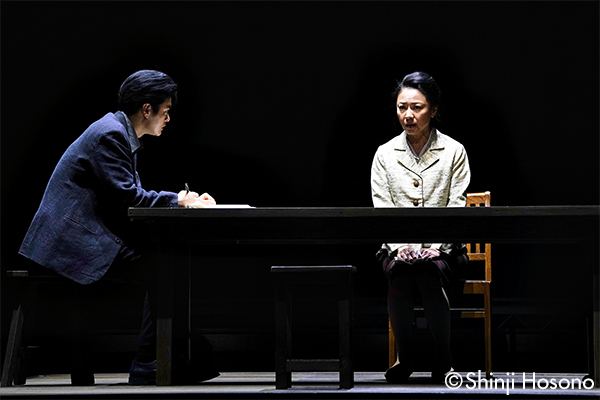
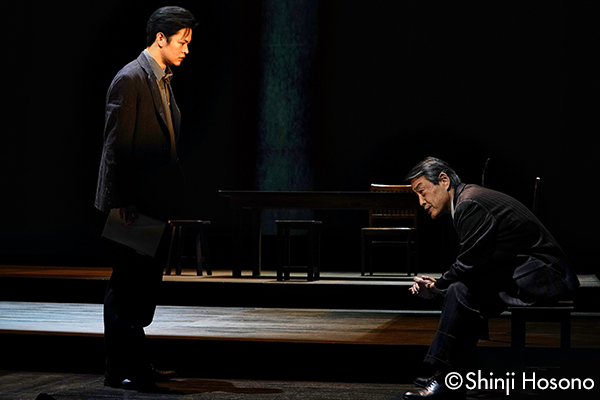
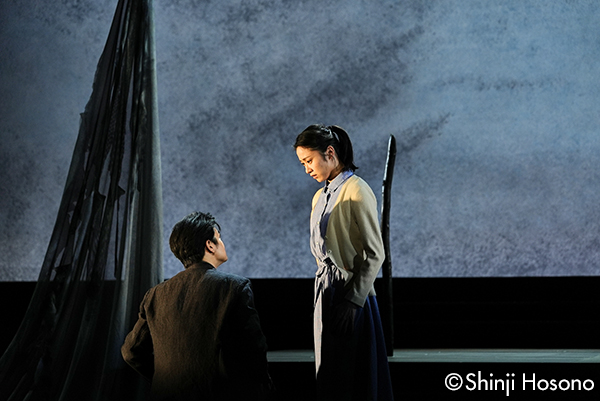
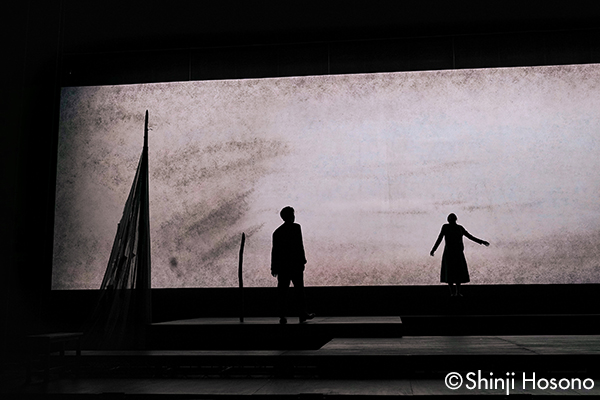
Related Tags